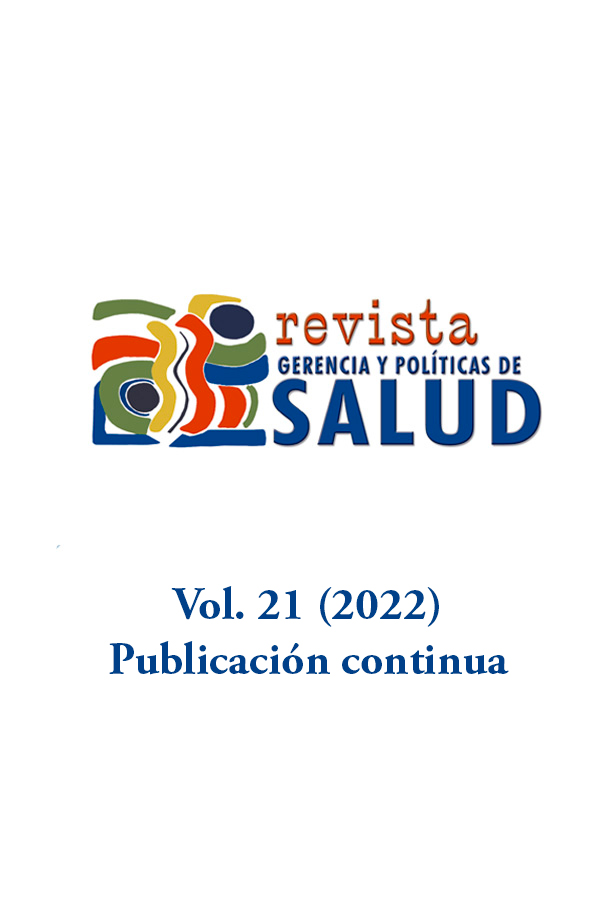Abstract
The pandemic caused by Coronavirus disease (covid-19) has impacted society as a whole, demanding adaptation to a new context, both personal and professional. The working conditions of health professionals have been the subject of current research interest, with emphasis on the risk of transmission and its impact on mental health. In this sense, the study analyzes the different implications of this pandemic in the private and professional environments among physicians, nurses and nursing technicians working in the Metropolitan Region of São Paulo, Brazil. From a qualitative and quantitative approach, interviews conducted mainly from a distance were explored, with the aid of technological mediation, with the application of a semi-structured interview script. It was verified that the adaptations to live and work in the pandemic were expressed heterogeneously among the different categories of health professionals, identified at the intersection between gender and social class, with women being largely responsible for the articulation of new forms of network support. The interventions to be implemented to recover from the effects of the pandemic will not be able to abstract the inequalities already present in society that are reproduced in the professional environment.
Binnie A, Kyra M, Claire M, Fréderick DA,Jennifer LYT. Psychosocial distress amongst Canadian intensive care unit healthcare workers during the acceleration phase of the COVID-19 pandemic. Plos One. 2021;16(8):1-24. https://pubmed.ncbi.nlm.nih.gov/34383781/
Teixeira FSC, Soares CM, Souza EA, Lisboa ES. A saúde dos profissionais de saúde no enfrentamento da pandemia de Covid- 19. Ciência & Saúde Coletiva.2020;25(9):3465-3474. https://www.scielo.br/j/csc/a/6J6vP5KJZyy7Nn45m3Vfypx/abstract/?lang=pt
Collins PH, Bilge S. Intersectionality. 2a ed. Cambridge, UK: Polity; 2021.
Dantas SO. Saúde mental dos profissionais de saúde no Brasil no contexto da pandemia por Covid-19. Interface. 2021;(25):1-9. https://www.scielo.br/j/icse/a/rCWq43y7mydk8Hjq5fZLpXg/
Albuquerque MFPM, Souza WV, Montarroyos UR, Pereira CR, Braga C, Araújo TVB, et al. Risk of SARS-CoV-2 infection among front-line healthcare workers in Northeast Brazil: a respondent-driven sampling approach. BMJ Open. 2022;12(6):e058369. doi: 10.1136/bmjopen-2021-058369
Heckathorn DD. Respondent-Driven Sampling: A new approach to the study of hidden populations. Social Problems. 2014;44(2):11-34. https://academic.oup.com/socpro/article-abstract/49/1/11/1664491?redirectedFrom=fulltext
Minayo MCS,Sanches OS.Quantitativo-qualitativo: oposição ou complementaridade?. Cadernos de Saúde Pública 1993;9(3):237-48. https://www.scielo.br/j/csp/a/Bgpmz7T7cNv8K9Hg4J9fJDb/
Bardin L. Análise de discurso. São Paulo: Edições 70; 2016.
Saldaña J. The coding manual for qualitative researchers. Los Angeles, CA: Sage; 2009. https://emotrab.ufba.br/wp-content/uploads/2020/09/Saldana-2013-TheCodingManualforQualitativeResearchers.pdf
Greenhaus JH. Innovations in the study of the work-family interface: Introduction to the Special Section. J. Occup. Organ. Psychol. 2008;81(3):343-8. http://isidl.com/wp-content/uploads/2017/10/E4999-ISIDL.pdf
Carr JC, Boyar SL, Gregory BT. The moderating effect of work-family centrality on work-family conflict, organizational attitudes, and turnover behavior. Journal of Management. 2008;34(2):244-62. https://psycnet.apa.org/record/2008-03892-004
Aguiar CVN, Bastos AVB. Interfaces entre trabalho e família: caracterização do fenômeno e análise de preditores. Rev. Psicol. Organ. Trab. 2017;17(21):15-21. http://pepsic.bvsalud.org/scielo.php?script=sci_arttext&pid=S1984-66572017000100002
Barnett RC, Hyde JS. Women, men, work, and family: An expansionist theory. American Psychologist. 2001;56(10):781-96. https://psycnet.apa.org/record/2001-18772-001
Bhargava S, Baral R. Antecedents and consequences of work-family enrichment among Indian managers. Psychological Studies. 2009;54:213-25. https://link.springer.com/article/10.1007%2Fs12646-009-0028-z
Greenhaus JH, Powell GN. When work and family are allies: A theory of work-family enrichment. Academy of Management Review. 2006;31(1):72-92. https://psycnet.apa.org/record/2006-00663-006
Grzywacz JG, Marks NF. Reconceptualizing the work-family interface: An ecological perspective on the correlates of positive and negative spillover between work and family. J Occup Health Psychol. 2000;5(1):11-26. https://pubmed.ncbi.nlm.nih.gov/10658890/
Mauno S, Rantanen M. Contextual and dispositional coping resources as predictors of work-family conflict and enrichment: Which of these resources or their combinations are the most beneficial? Journal of Family and Economic Issues. 2013;34(2):87-104. https://ideas.repec.org/a/kap/jfamec/v34y2013i1p87-104.html
Brasil. Ministério da Saúde. Protocolo de manejo clínico do coronavírus (Covid-19) na atenção primária à saúde. 2020. https://docs.bvsalud.org/biblioref/2020/05/1095920/20200504-protocolomanejo-ver09.pdf
Aquino EML, Silveira IHS, Pecarini JM, Aquino R, Souza JA, Rocha AS, Ferreira A, et al. Medidas de distanciamento social no controle da pandemia de COVID-19: potenciais impactos e desafios no Brasil. Ciência & Saúde Coletiva. 2020;25(1): 2423-46. https://www.scielo.br/j/csc/a/4BHTCFF4bDqq4qT7WtPhvYr/?lang=pt
Hirata, H. Trabalho doméstico: uma servidão “voluntária”? In: Godinho T, Silveira, ML, orgs. Políticas públicas e igualdade de gênero. São Paulo: Coordenadoria Especial da Mulher; 2004. p. 43-54.
Hirata H. Novas configurações da divisão sexual do trabalho. Revista Tecnologia e Sociedade. 2010;6(11):1-7.

This work is licensed under a Creative Commons Attribution 4.0 International License.
Copyright (c) 2022 Fabiana Albino Fraga, Maria Amélia de Sousa Mascena Veras, Yuri Bassichetto Tambucci, Katia Cristina Bassichetto, Gabriela Furst Vaccarezza, Daniel Dutra de Barros, José Luis Gomez Gonzalez Júnior, César Augusto Inoue, Lenice Galan de Paula, Fabíola Rocha, Cláudia Barros, Ferdinando Diniz de Moura, Celina Maria Turchi Martelli, Maria de Fatima Pessoa Militão de Albuquerque, Lígia Kerr, Luana Nepomuceno Costa Lima, Luciane Nascimento Cruz, Carl Kendall, Nivaldo Carneiro Júnior


